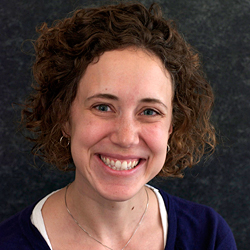
A new study shows that lesbian, gay, and bisexual (LGB) adults were more likely than their heterosexual counterparts to believe they’d need long-term care in the future. The research was conducted at the School of Public Health.
The findings were published online today in the American Journal of Public Health.
This study follows a January 2015 study in Health Affairs, which found middle-aged adult Americans (ages 40-65) underestimate their future health care needs for long-term care services and supports. The Health Affairs study found 60 percent think they are unlikely to need care, while in reality only 30 percent will not need care.
“The American population is aging. With that population change comes greater needs for long-term care,” said Carrie Henning-Smith, lead author and Ph.D. candidate in the School of Public Health. “However, we know very little about people’s expectations around future use of care, although research indicates most Americans are under-informed about care and have made few plans if a need arises.”
Other key findings:
- LGB adults had higher rates of disability and were more likely to have a close relative who has needed long-term care. Both disability and having experience with long-term care were associated with a greater likelihood of expecting to need care for oneself. Educational campaigns might benefit from using narratives of individuals who have needed long-term care for themselves or a loved one to raise awareness.
- LGB adults were less likely to expect family to provide care and more likely to expect to use institutional care (nursing home or assisted living). This may raise questions about gaps in familial support for LGB adults, as well as about funding resources for costly institutional care.
Prior to this study, little was known about expectations around long-term care by seeing whether expectations vary by sexual orientation.
“These study findings could help policymakers better predict who is planning for future health care needs and who isn’t and to target educational campaigns effectively,” said Henning-Smith. “They can also be used to estimate the unique care needs and planning behaviors of LGB adults.”
~ This post was derived from a press release originally issued by the Academic Health Center

